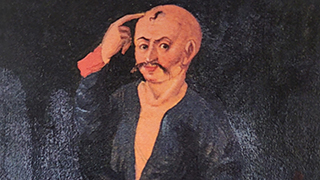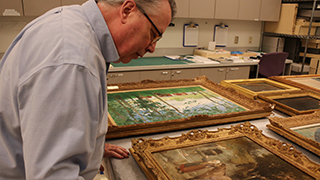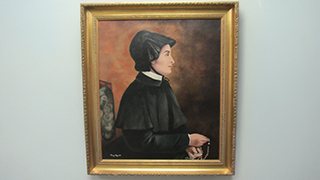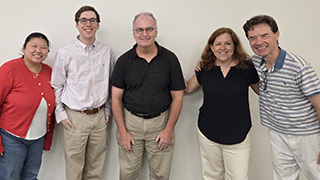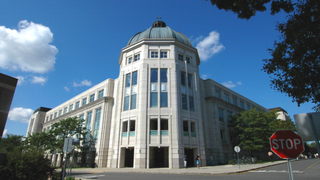Lost and Found: An Ecclesiastical Mystery and A Cardinal's Death Brought to Light
Thursday, October 19, 2023
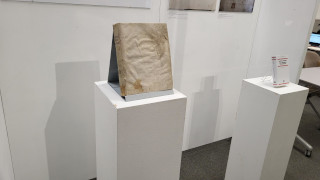
Seton Hall University rare manuscript, The Republic of the Church.
The unwinding of an ecclesiastical mystery involving Florentine Cardinal Niccolò Ridolfi, 1501–50, the nephew and cousin to Medici popes Leo X and Clement VII, whose premature death during the Papal Conclave of 1549–50, and allegations of his poisoning appear clearer through the fortuitous discovery of an ancient manuscript by History Professor William Connell. A visit to Almalfi and a chance encounter in a charming out of the way antiques shop led to the purchase of four 16th century handwritten manuscripts at 500 euros each, for Seton Hall’s University Libraries special collections, and an extraordinary discovery.
Connell will recount his discovery of the priceless codex, The Republic of the Church, at Lost and Found:16th Century Manuscript Meets 21st Century Church Reform, at 6 p.m. on October 30, in Bethany Hall A. Hosted by The Charles and Joan Alberto Italian Studies Institute, Connell will discuss its significance with Monsignor Thomas Guarino, S.T.D., Professor Emeritus of Systematic Theology.
The founding director of the Alberto Italian Studies Institute and La Motta Endowed Chair in Italian Studies, College of Arts and Sciences, Connell is an acclaimed scholar, honored in June 2023, by The U.S.-Italy Fulbright Commission. He was invited to present a virtual lecture on his discovery to London’s Institute for Historical Research for an international audience of scholars and historians on October 19.
Connell said: “The Republic of the Church is the only known copy of the first history of the Catholic Church written by a layperson, Donato Giannotti. All the early histories of the Church from the three hundreds up until Giannotti, in 1541, were written by clergy. This manuscript can be called the first modern history of the Church. We will be discussing its relevance in term of efforts for reform in the 20th and 21st century, beginning especially with Vatican II, and continuing through to discussions now about the role of bishops and synods in contemporary Catholicism. How does this connect to the author of this manuscript, Giannotti? It makes him someone who's relevant in a contemporary way that is wonderful for someone who wrote in 1541.”
The book was written during the movement for reform within the Catholic Church that coincided with the Protestant reformation, and it recommended that the papal monarchy be transformed into a republic. The College of Cardinals, acting as a “senate,” would control the treasury and administration, and the pope would become a ceremonial figure. Bishops would be elected by the people and clergy of their own dioceses. The book was written at the request of Cardinal Ridolfi, who, during the conclave of 1550, was about to be elected pope, when he was likely poisoned and died just before the crucial vote.
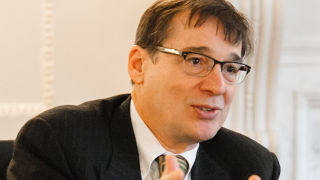
Professor William Connell
Said Connell: “Cardinal Ridolfi thought that the Roman Church needed to reform itself. Giannotti’s book proposed a more radical reform than was being proposed by others in the Church at the time. He proposed that that the Church limit the powers of the papacy, that the pope should become a ceremonial figure. You might think of the role of the British monarch, for instance, that the powers of the Church should be preserved, but they should be exercised by a virtuous college of cardinals who would function like a Senate passing measures by majority vote, debating measures openly; no secret ballots. And he wanted bishops to be elected locally by the clergy and people in each diocese. It's a radical change, very utopian, very different from what the Church would then adopt in its serious reform that took place at the Council of Trent from 1545 to 1563.”
While the program is free, event registration is requested.
To learn more, tune in to the University Libraries’ Zet Forward podcast interview with Professor Connell and Sarah E Ponichtera, Assistant Dean of Special Collections and the Walsh Gallery: Episode 6: The Republic of the Church.
Categories: Faith and Service


